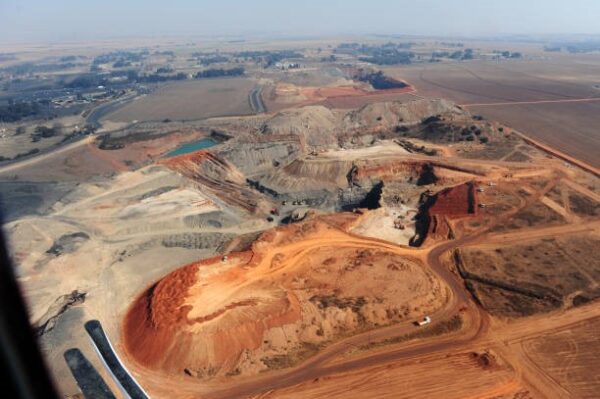By Dr. Mohamed H’MIDOUCHE, CEO, Inter Africa Capital Group
In a context of accelerated energy transition and increasing pressure for the decarbonization of economies, Africa holds a major strategic asset: its abundant reserves of critical minerals – cobalt, lithium, nickel, rare earths, graphite, and copper. These resources are essential for the production of batteries, wind turbines, electric vehicles, and low-carbon technologies. However, without strong and sustainable governance, this advantage can turn into a curse. Hence the urgent need for an African ESG framework adapted to these specific challenges.
During the 20th session of the African Ministerial Conference on the Environment (AMCEN-20), recently held in Nairobi, the Moroccan Minister of Energy Transition, Leila Benali, made a clear and strategic call: Africa must establish its own ESG (Environmental, Social, and Governance) framework tailored to its realities to regulate the exploitation of critical minerals. This plea, welcomed by many observers, highlights the ambition of the Kingdom of Morocco to play a leading role in this new green economy.
ESG: an imperative for African competitiveness and sovereignty
ESG frameworks have become essential benchmarks in investment decisions, public policies, and global supply chains. However, dominant international standards are often disconnected from African realities, especially in the mining sector. Initiatives such as the Equator Principles, the European Green Taxonomy, or the OECD guidelines are primarily designed by and for Northern countries.
In response to this, a contextualized African ESG framework would ensure traceability, sustainability, and local added value, while meeting the growing requirements of international markets and responsible investors.
According to a study by the Natural Resource Governance Institute (NRGI), only a minority of African mineral-producing countries currently have a coherent ESG evaluation system for extractive projects. This gap exposes the continent to the “resource curse” and the risks of greenwashing by external actors.
Morocco, a catalyst for responsible governance
Moroccan leadership is concretely demonstrated through the innovative proposal of an OTC (Origin – Transit – Certification) corridor, developed with African mining ministers. This corridor aims to secure the flows of critical minerals extracted in Africa and destined for the global industry, while ensuring their traceability, compliance with ESG standards, and their partial or total transformation on African soil.
Building on the work of the African Mining Development Center (AMDC) and in line with the Atlantic Initiative launched by His Majesty King Mohammed VI, Morocco articulates three complementary levers:
1. Pan-African resource governance
2. Enhanced South-South cooperation
3. Energy sovereignty anchored in green value chains
The proposed Atlantic corridor would offer a strategic alternative to traditional export routes, often captive to external interests. It would allow Africa to regain control over the certification, transit, and transformation of its resources.
Towards an African ESG taxonomy?
Several voices are now calling for further steps: developing an African ESG taxonomy tailored to sustainable development goals, local content imperatives, climate requirements, and the social realities of mining communities.
Inspired by the work of the Economic Commission for Africa (ECA), the African Development Bank (AfDB), and the Just Energy Transition Partnership (JETP), this taxonomy would:
• Classify extractive projects according to their alignment with SDGs,
• Direct public and private funding towards the most responsible projects,
• Strengthen transparency and social responsibility of mining companies,
• Increase states’ capacity to negotiate fair contracts.
For a green and shared sovereignty
The call made by Minister Leila Benali aims not only to improve Africa’s image in the raw materials market. It aims to transform the paradigm: African resources must first serve the continent’s interests, while respecting intergenerational equity, social justice, and environmental sustainability.
As emphasized by the World Bank, global demand for critical minerals could increase by 500% by 2050. If Africa wants to benefit from this momentum, it must act now to build a virtuous extractive model, resolutely focused on local transformation, technological upscaling, and community inclusion.
The African ESG framework should not be a mere adaptation of existing models. It should be a lever for sovereignty, innovation, and structural transformation.
Conclusion
Through its strategic vision and concrete initiatives, Morocco emerges as a pioneer in green governance of natural resources in Africa. The development of a continental ESG framework, initiated by African countries themselves, now appears as a necessity, not only to meet the requirements of the global market, but above all to build African development by and for Africans, respecting ecological and social balances.


